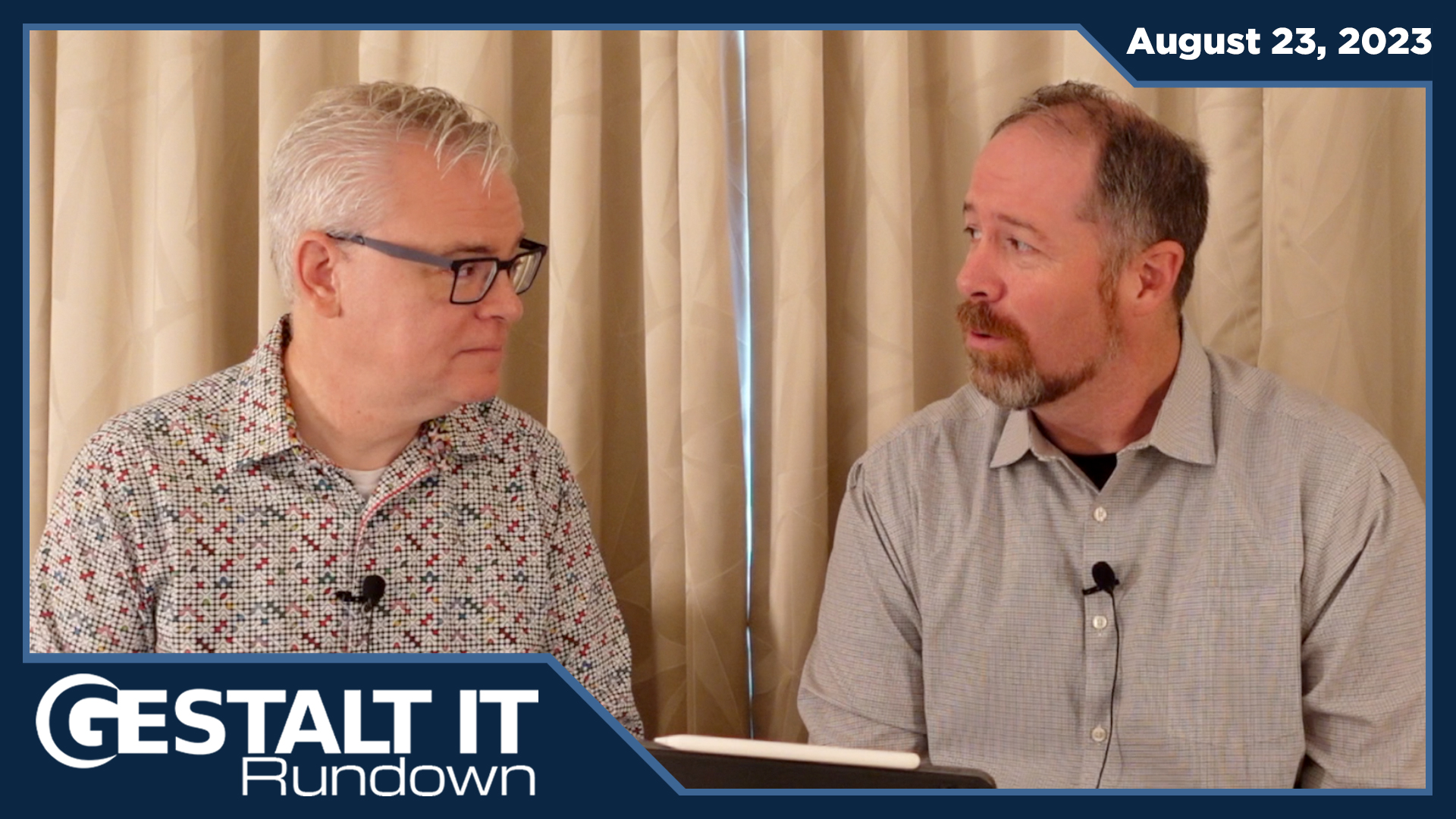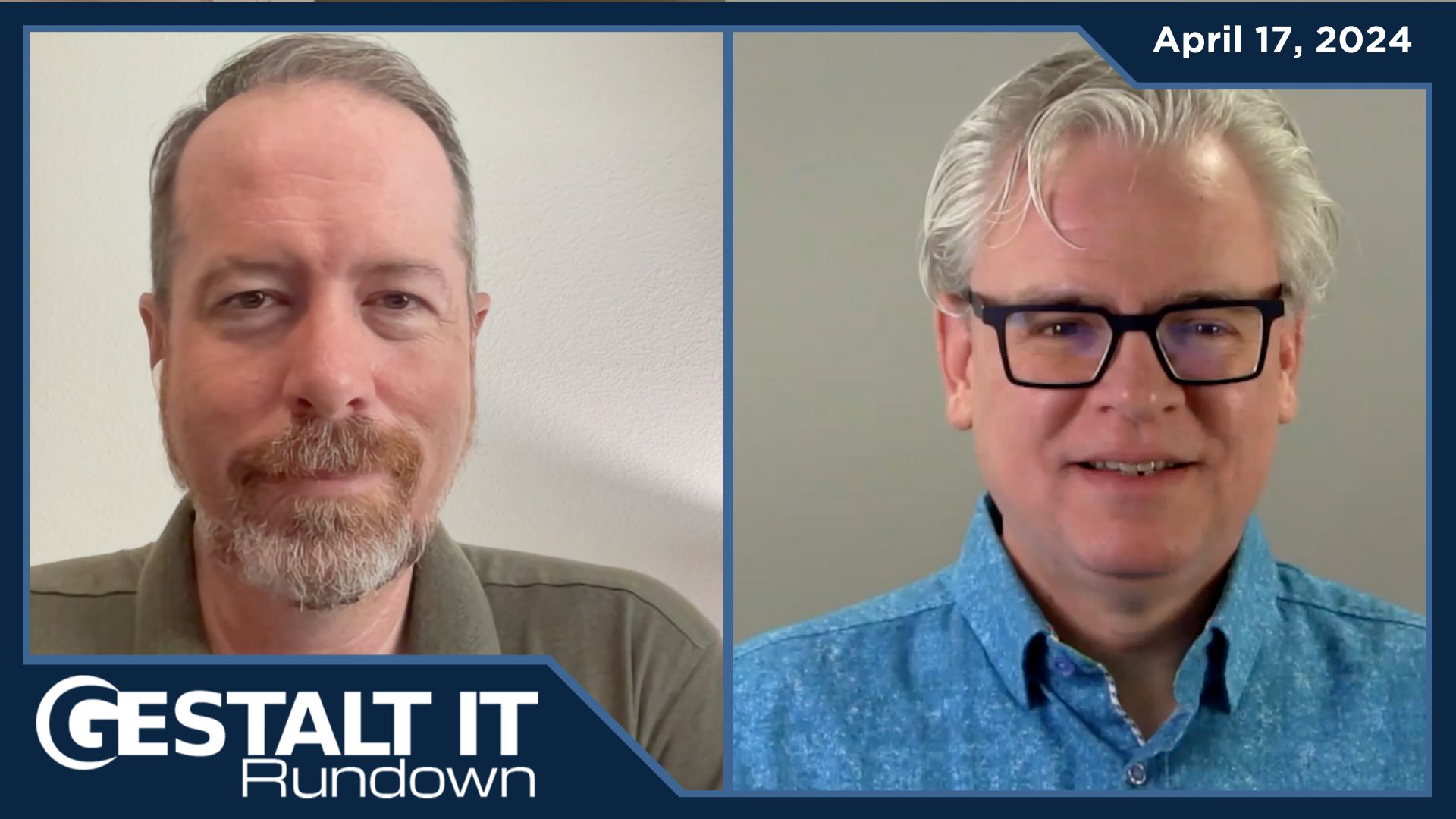HPE is acquiring CloudPhysics, VMware vCenter needs to be patched and Google Research fires AI Bias Experts after they point out biases in AI. We discuss these stories and much more on this week’s Rundown.
Clumio Refocuses on Public Cloud Backup
Clumio is in the news for shifting their focus to public cloud backup. The startup announced they are laying off about 2/3rds of their sales staff in the move. Clumio had previously offered backup solutions for cloud software-as-a-service and on-prem deployments. The move signals the growing cloud market’s dominance over businesses and their software consumption.
The next time you’re at the airport you might see a new Boingo. The wireless provider famous for their offerings in airports and other travel locations announced that it will be going private in Q2. The buyout by a private equity firm is valued at around $854 million including debt. The company has seen a revenue decline with the COVID-19 pandemic and hopes that going private will allow it to shift some assets around and come back strong when travel opens up again and more users are active on their service.
Intel Owes $2 Billion in Patent Judgement
A Texas jury has found that Intel owes $2 billion in damages for infringing two patents. The catch in this case is that the company that won the lawsuit hasn’t been around for almost 20 years. VLSI, famous for helping develop the first ARM processors, was purchased back in 1999 and has been traveling around semiconductor firms ever since. The name VLSI resurfaced in 2019 as an LLC attached to an investment group and was assigned patents related to clock speed management, memory voltage, and memory scaling. Intel has said they disagree with the ruling and will be appealing. VLSI has other lawsuits pending and will likely have a war chest ready to litigate.
Malaysia Airlines Admits to Breach Lasting Nine Years
Malaysia Airlines has a bit of apologizing to do this week. They announced that customers of their Enrich frequent flyer program had suffered a data breach sometime March 2010 and June 2019. The leak came courtesy of that third-party IT contractor. The airline claims that personal information such as name and contact info along with frequent flyer number was exposed. However, travel itinerary data and passwords were not believed to be affected.
NetApp Shifts Customers from HCI to Astra
NetApp is transforming their Element OS, acquired with SolidFire in 2015, into a software-only approach. Known as Astra, this new software is Kubernetes-ready and more cloudy than ever. Since NetApp was the poster boy for “disaggregated HCI”, what does this mean for that approach and for HCI in general?
HPE is picking up CloudPhysics. The company announced the acquisition of the AI Hybrid Cloud assessment platform last week. CloudPhysics was already being offered through a partnership with HPE for assessments and the popularity of the tool was strong enough that HPE wanted to bring their expertise in-house. The crown jewel of the purchase is the CloudPhysics data lake, estimated by hold around 200 trillion entries from the over 1 million virtual machines that CloudPhysics has data on. HPE is looking to integrate this data lake with the one for their InfoSight analytics tool to provide even more data for the algorithms to crunch and provide predictive analysis and management capabilities for their customers in both on-prem environments and the cloud.
VMware vCenter Needs to Be Patched
If you’re a VMware admin you’d better go patch vCenter right now. The leader in virtualization has issued software updates to forestall a critical vulnerability that has been announced. The exploit allows for remote file upload and code execution over port 443 without the need to authenticate. vCenter 6.5, 6.7, and 7.01 need to be patched right away if possible and if not, VMware has a workaround that will keep you from getting exploited until you can. Researchers have announced that scanning for vulnerable systems kicked off immediately after the announcement of the vulnerability and patch release, with between 6,000 and 15,000 servers exposed to the public Internet.
Google Research Fires AI Bias Experts After They Point Out Bias in AI
In December, Google fired Timnit Gebru, a well-known researcher studying ethics and bias in AI. After 2,700 employees signed a letter of protest, and two other leading engineers quit, Google promised to do better. Then they fired the Co-Lead of the team, Margaret Mitchell, allegedly for mishandling internal files. Mitchell contends that she was a whistleblower and was blocked from publishing by the company. What’s going on here?
The Gestalt IT Rundown is a live weekly look at the IT news of the week. It broadcasts live on Facebook every Wednesday at 12:30pm ET. To watch along, “Like” our Facebook page. Be sure to subscribe to Gestalt IT on YouTube for even more weekly video content.




